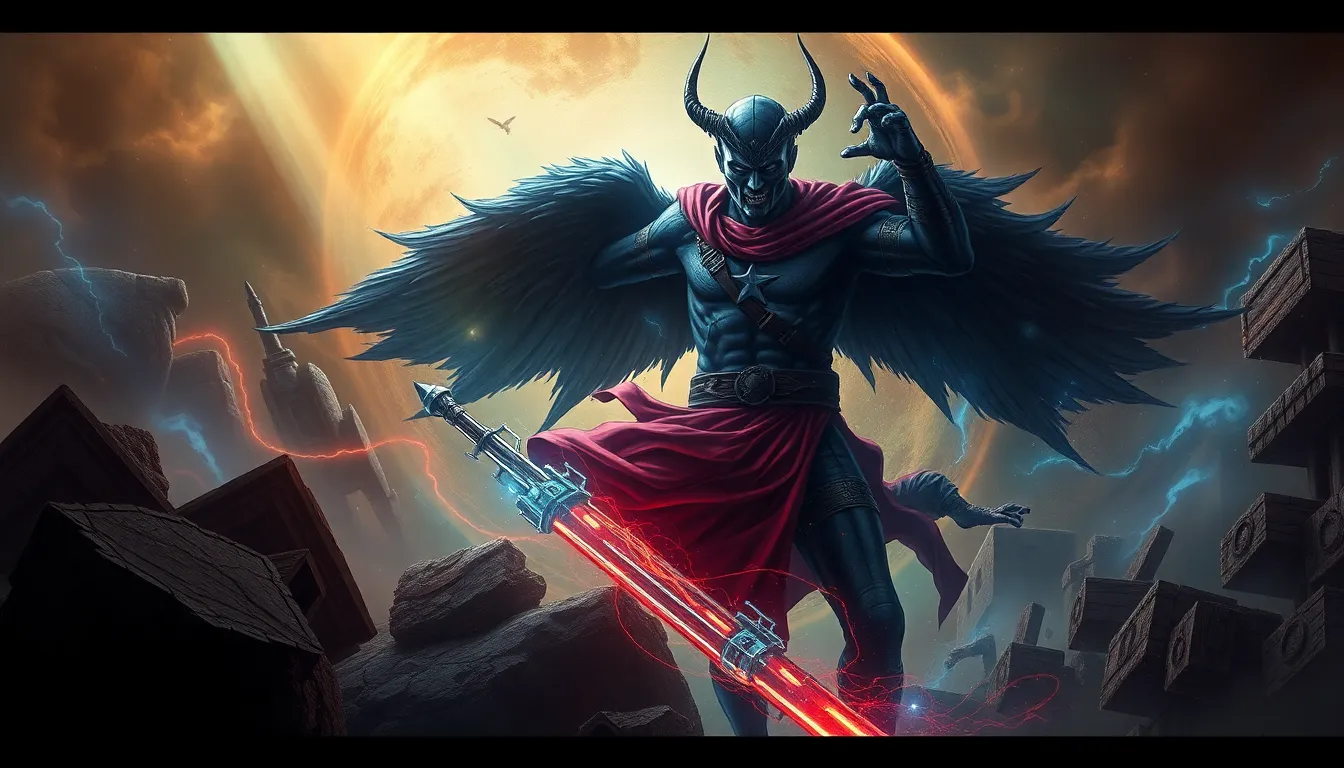The Myth of the Righteous Avenger: Morality in Revenge Tales
Introduction: Defining the Righteous Avenger
The concept of the righteous avenger is a prominent motif in literature and folklore, representing individuals who seek vengeance for perceived wrongs. These characters are often portrayed as heroes, fueled by a moral imperative to right injustices. The archetype of the righteous avenger resonates deeply within cultural narratives, serving as a lens through which societies evaluate morality, justice, and the human condition. Whether in ancient myths or contemporary stories, revenge tales illuminate the complexities of ethics and the human psyche.
Historical Context of Revenge in Mythology and Literature
Revenge motifs have been prevalent in ancient myths and literary works throughout history. Greek tragedies, such as “Orestes,” depict avenging figures grappling with the consequences of their actions. Norse sagas, too, are rich with themes of vengeance, where honor and retribution drive characters to fulfill their destinies.
As literature evolved through various periods, the avenger archetype transformed, reflecting societal changes in attitudes toward justice and morality. From the epic tales of Homer to the moral complexities of Shakespeare, the journey of the righteous avenger showcases a shifting understanding of retribution.
Psychological Underpinnings of Revenge
Human psychology plays a crucial role in the motivations behind revenge. While the impulse to retaliate can stem from a desire for justice, it often leads to destructive outcomes. Psychologically, revenge may provide a temporary sense of satisfaction or catharsis, yet it frequently spirals into a cycle of violence that perpetuates suffering.
- Motivations for Revenge:
- Restoration of personal honor
- Retribution for perceived injustices
- Desire for control and power
- Consequences of Revenge:
- Emotional turmoil and guilt
- Escalation of conflict
- Isolation from loved ones
Moral Ambiguities in Revenge Narratives
Revenge narratives often present moral dilemmas that challenge the notions of right and wrong. Characters like Hamlet from Shakespeare’s play and Edmond Dantès from “The Count of Monte Cristo” wrestle with their motivations and the ethical implications of their quest for vengeance. Their journeys highlight the transformation of the avenger’s moral compass, raising questions about the integrity and justification of their actions.
The Role of Justice vs. Vengeance
A critical distinction exists between justice and personal revenge in storytelling. Justice is typically portrayed as a societal mechanism for restoring order, while vengeance is an individual pursuit, often rooted in emotion rather than law. Characters such as Batman and those in Quentin Tarantino’s “Kill Bill” exemplify this blurred line, as they seek to avenge personal wrongs while grappling with their moral standing.
Cultural Perspectives on Revenge
Cultural interpretations of revenge vary significantly, influencing how stories are told and received. In Eastern narratives, revenge may be seen as a path to restoring balance, as seen in many samurai tales. Conversely, Western stories often depict revenge as a destructive force that leads to further chaos.
Examples of these cultural differences include:
- Eastern Narratives: Emphasis on honor and familial duty.
- Western Narratives: Focus on individualism and personal justice.
Consequences of the Righteous Avenger’s Actions
The consequences of the avenger’s actions are significant, impacting not only the individual but also the community. Revenge can lead to a cycle of violence that perpetuates suffering, as seen in numerous narratives where one act of vengeance begets another. The long-term effects often result in a fracturing of relationships and societal discord.
Redemption Arcs and the Possibility of Forgiveness
Amidst the chaos of revenge, some narratives explore themes of redemption and forgiveness. Characters may embark on a journey of self-discovery, seeking to atone for their actions. The role of forgiveness emerges as a powerful tool for breaking the cycle of revenge, allowing for healing and reconciliation.
Examples of redemption arcs include:
- The character of Jean Valjean in “Les Misérables,” who seeks forgiveness for his past.
- The transformation of Anakin Skywalker in “Star Wars,” culminating in his redemption through sacrifice.
Modern Adaptations and Their Moral Messages
Contemporary films, books, and shows continue to reinterpret the righteous avenger trope, often challenging traditional views on revenge. Modern narratives may present a more nuanced portrayal of avengers, highlighting the psychological burdens they carry and the moral complexities of their choices.
Examples of modern adaptations include:
- “John Wick,” which explores the personal cost of vengeance.
- “V for Vendetta,” where the protagonist seeks justice while grappling with ethical implications.
Conclusion: Reevaluating the Righteous Avenger in Modern Society
Revenge tales remain relevant in today’s moral landscape, prompting reflections on justice, ethics, and the human experience. The myth of the righteous avenger serves as a cautionary tale, illustrating the potential consequences of vengeance and the importance of forgiveness. As societies continue to grapple with issues of justice and morality, these narratives offer valuable lessons about the complexities of human emotions and the paths toward healing and understanding.




